Phil Lowe: A craftsman and gentleman
Two woodworkers, Will Neptune and Steve Brown, remember their mentor.
Synopsis: Woodworking lost one of its giants in January 2021 with the passing of Philip C. Lowe, teacher and master of period furniture making, founder of the Furniture Institute of Massachusetts, sailor, scholar, writer, and friend. Here the woodworking community remembers one of our own.
Woodworkers like Philip C. Lowe don’t come along often. In fact, humans like him are a rare commodity, combining extraordinary talent with more than average levels of kindness and generosity, and on top of that the passion and temperament to teach for decades. While he can’t be summed up with a few titles, Phil was a father, husband, tradesman, sailor, teacher, scholar, writer, mentor, and, above all, a friend. His life was full. His loss is profound.
A teenager sets out on a path
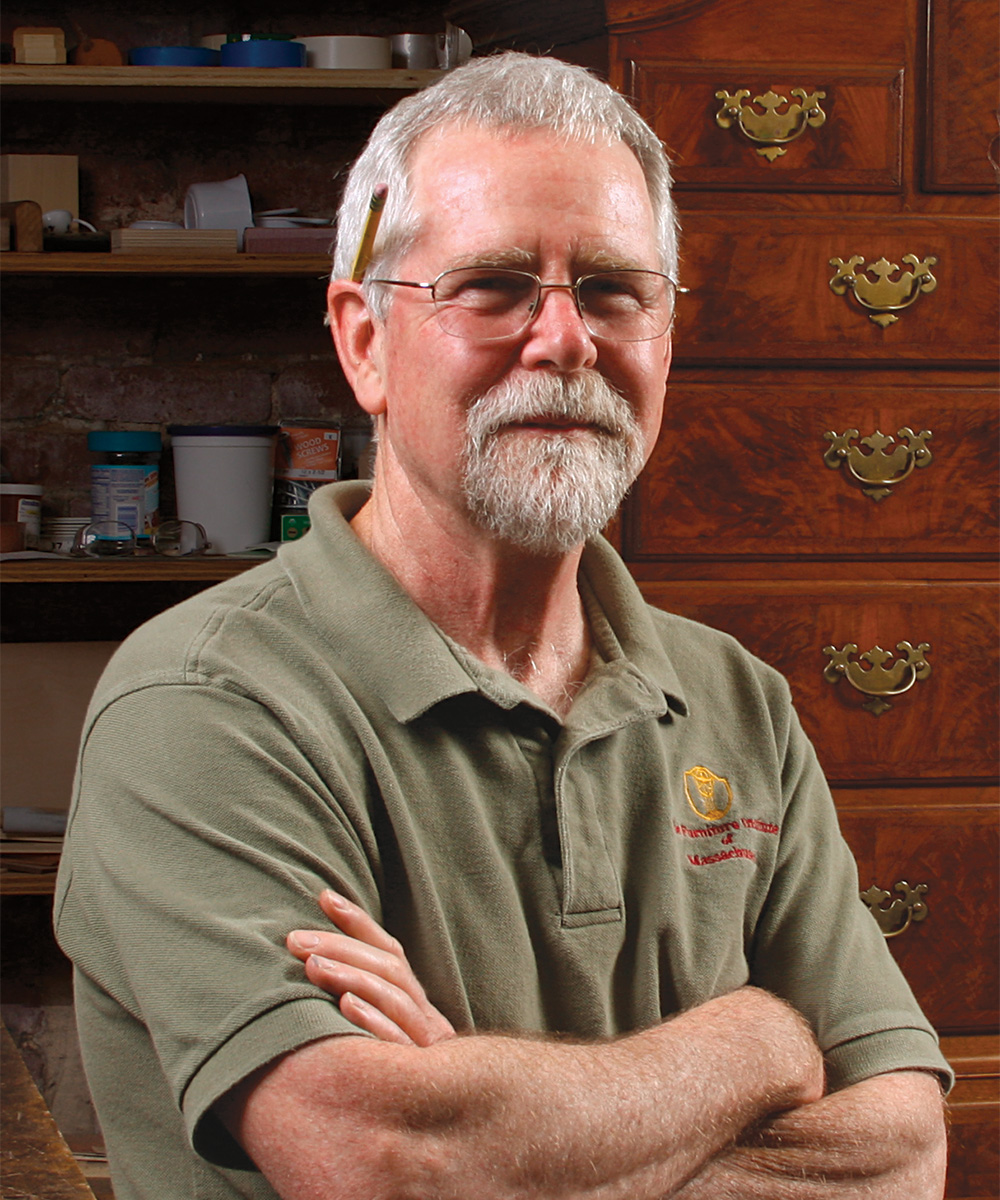
In 1967, Phil gained entrance into North Bennet Street School’s Cabinet and Furniture Making program. He was just 17— under the permissible starting age—and was admitted solely on the strong recommendation of his high school shop teacher. Phil left NBSS after one year to join the Navy, where he worked on a ship doing metal and wood repairs and fabrication for four years. He said his time in the Navy taught him the value of being efficient and productive.
He returned to NBSS in 1972 to complete his second year. As a student there, Phil learned furniture making from George Fullerton, who had apprenticed in the Massachusetts shop Mellish and Byfield (which had been in business since 1815) and enjoyed a long woodworking career before retiring in 1951 and starting the furniture making program at NBSS. Phil learned the skills of the trade, and learned them well. He was remarkably productive.
He began teaching at NBSS in 1975, as Mr. Fullerton’s first assistant, then as the head of the department. This continuity of professional training proved a tremendous asset for the students. Phil’s immense knowledge, innate talent, patience, practical approach, and humor turned out to be the perfect formula for teaching. Under his leadership the program thrived.
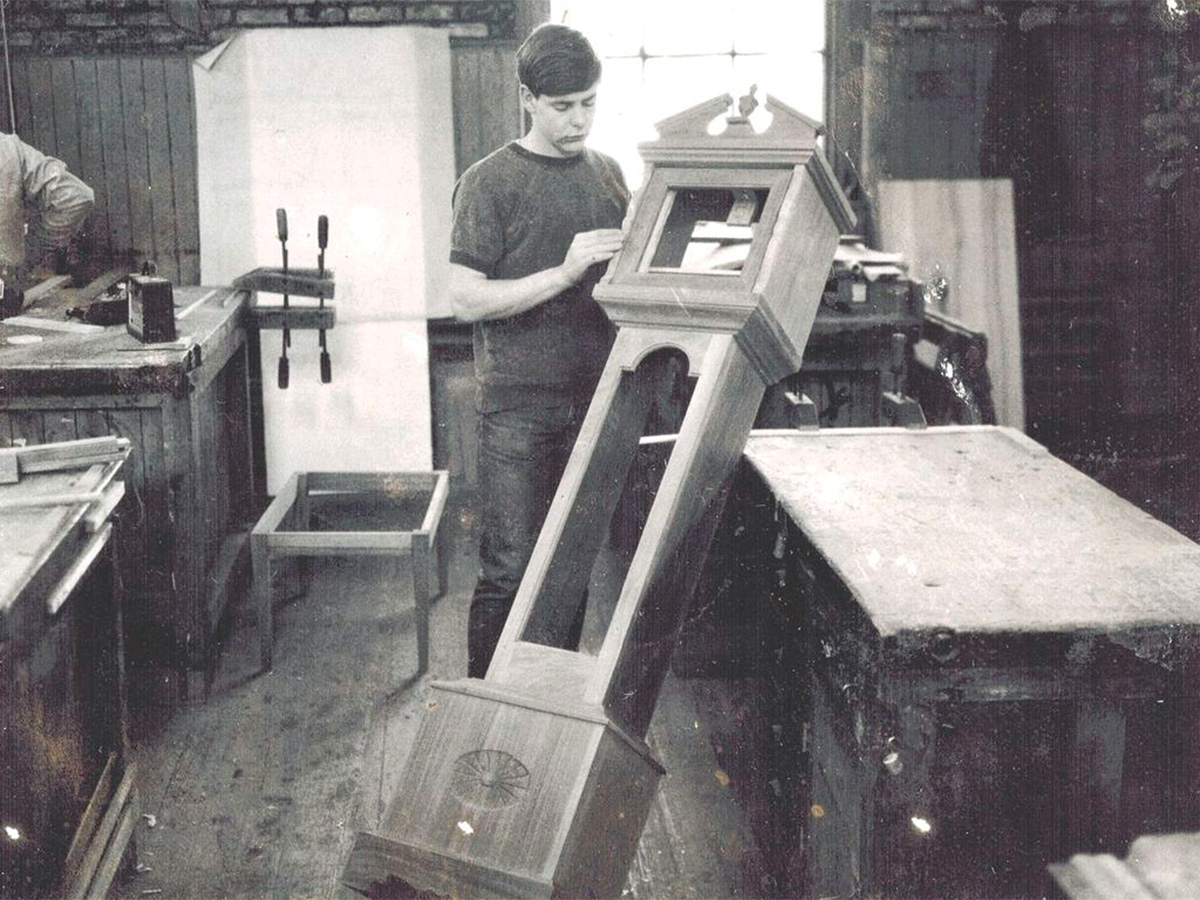
In 1985, after more than a decade teaching, Phil stepped down and started a fulltime business in his home town of Beverly, Mass. His work included conservation, custom furniture, turning, and carving. Throughout his career, he maintained a steady stream of furniture commissions and furniture conservation jobs, but he spent the next 14 years steeped in that work.
The culmination of a life’s work
The Furniture Institute of Massachusetts, the school Phil started in 1999, was his passion—the manifestation of his life’s endeavors as a woodworker and teacher. He ran the school for more than 20 years, closing the doors in early 2020 to focus on his health and his family.
For many of his students, Phil represented a link to the long history of woodworking. The school began with Phil teaching a two-year class, as well as shorter classes for serious hobbyists. He also shared his broad knowledge of furniture making at guilds across the country, and by writing articles and making videos for Fine Woodworking for more than 30 years. Phil was no stranger to accolades from his peers. In 2005 he received the prestigious Cartouche Award, given by the Society of American Period Furniture Makers in recognition of his skill and his career as a teacher. He also received the 2010 Artisanship Award from the Institute of Classical Architecture and Classical America.
As an instructor at the North Bennet Street School and then in his own school, Phil was one of the last authentic connections to the rich woodworking tradition found in the shops that began to disappear in the 20th century. It was in those shops that George Fullerton acquired the skills and knowledge that he shared with Phil, first as Phil’s teacher, then as his mentor when Phil began to teach. Phil’s legacy is found not only in the students who went on to work as furniture makers, but also in those who became teachers themselves, trying to pass on what they gained from him.
The pragmatist inside the teacher
While Phil’s expertly crafted, historically accurate pieces might have seemed the epitome of romance, he refused to romanticize the trade. He repeatedly impressed upon students that they were making a “product.” This did not mean he didn’t appreciate the rewards and satisfactions that come from doing good work and having it recognized by others. But he knew that going into the shop Monday morning meant there was work to do, whether you felt inspired by it or not. He was realistic and pragmatic without losing the ability to appreciate his accomplishments.
He always remembered to emphasize that woodworking is a trade, that the decisions and judgments made when designing and making work for clients should be based not only on the quality of the craftsmanship but also on the smart and prudent use of your time. So he expected his students, like himself, to see both proficiency and efficiency as essential. The goal of any commission was to figure out how to best produce work that met the client’s expectations and needs with quality workmanship and professional efficiency. He did not feel the need to overbuild for the sake of proving his abilities.
Phil also knew you didn’t have to own certain benches, fixtures, or tools to be a successful woodworker. He produced quality work on a simple bench with a basic side vise. He exemplified a North Bennet Street catch-phrase that embraced “using hand tools in concert with machinery.” He did what made sense at the time given the task.
Phil found enjoyment in the process of building pieces that he knew others would live with and enjoy. This was also true with the teaching he did and the happiness that he saw in his student’s efforts and successes.
Will Neptune graduated from NBSS in 1981 and taught there from 1985 to 2000. His work includes commissioned furniture and carving. Like Lowe, he is a Cartouche award recipient. Steve Brown graduated from NBSS in 1990. Brown then worked for Phil until returning to NBSS as an instructor in 1999.
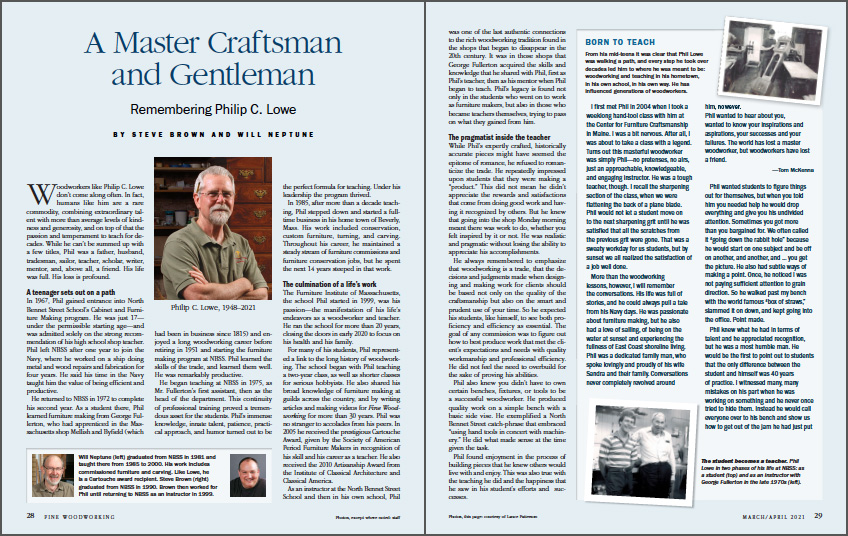
From Fine Woodworking #288
To view the entire article, please click the View PDF button below.
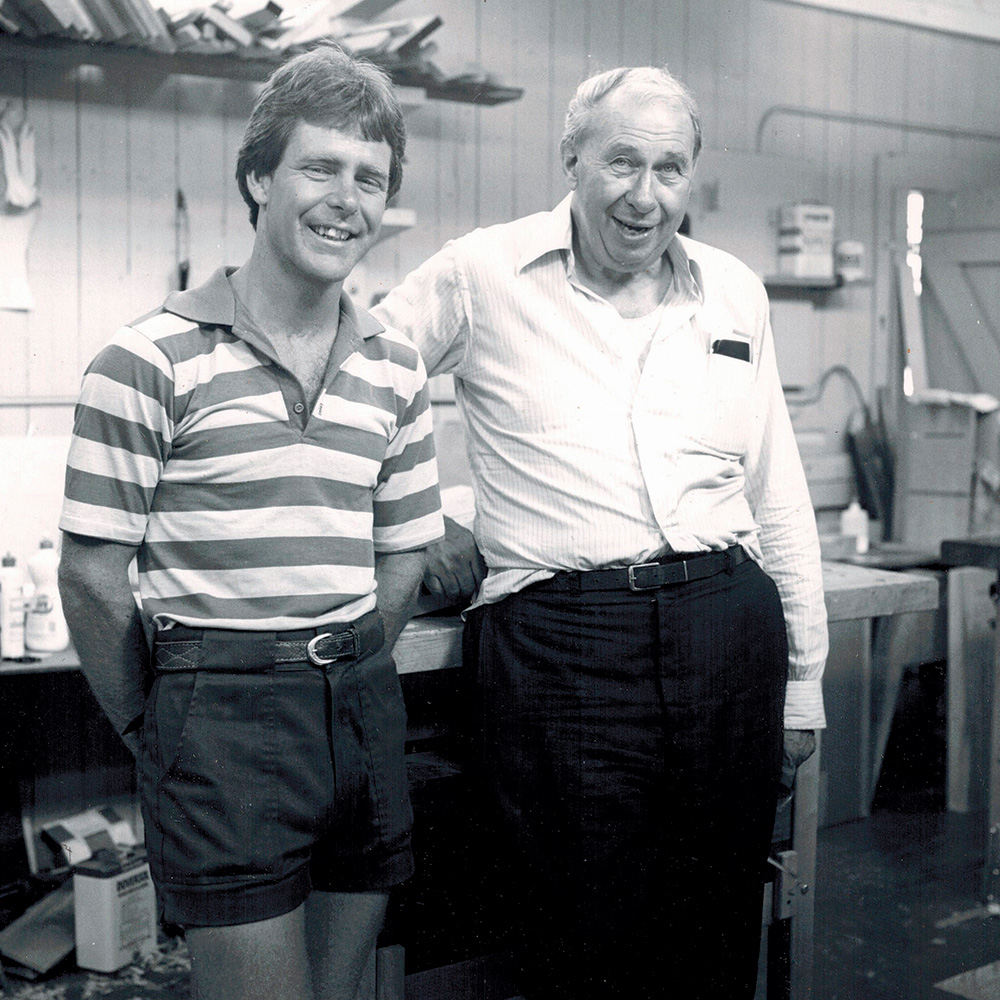
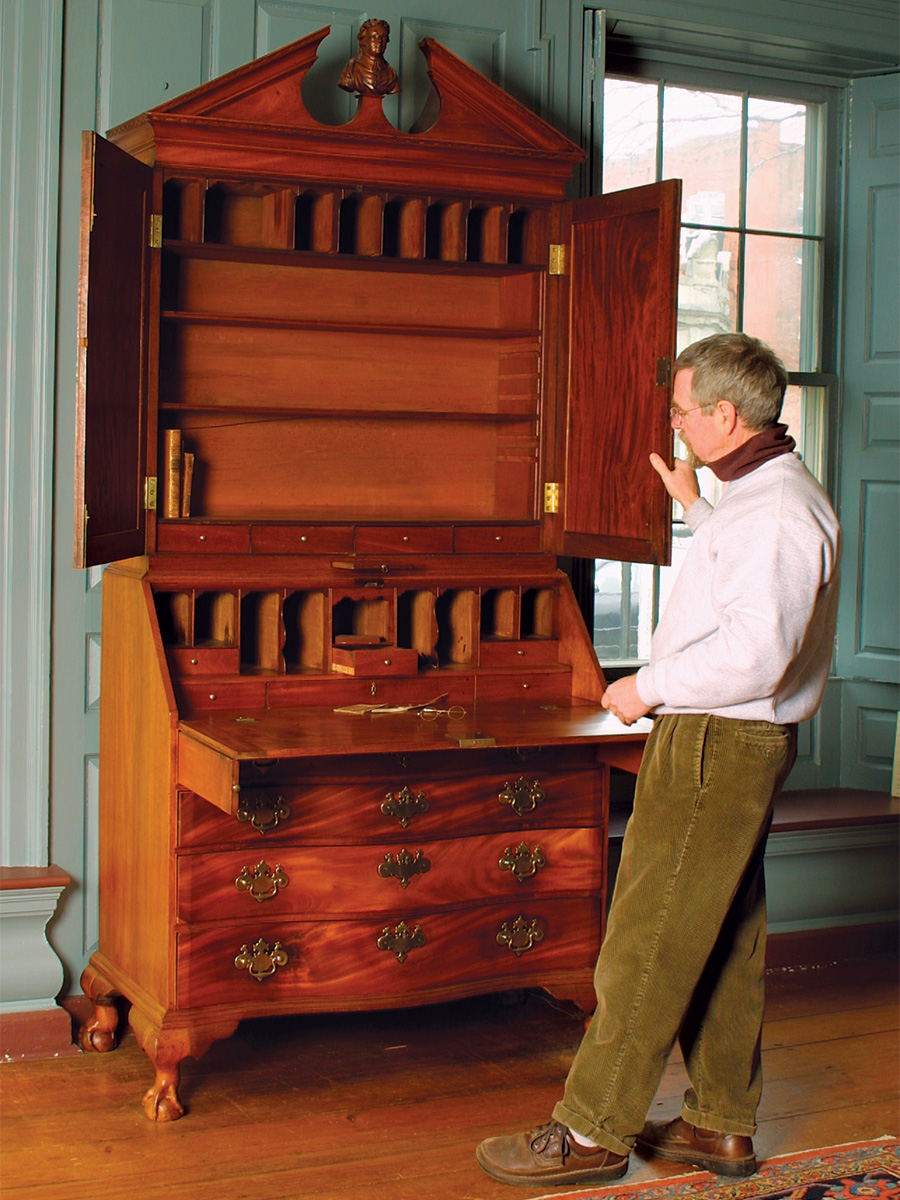




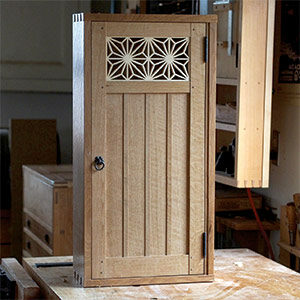
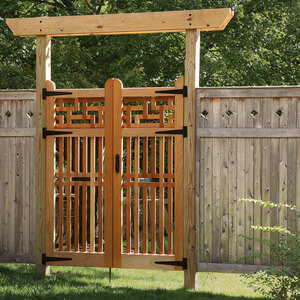











Log in or create an account to post a comment.
Sign up Log in